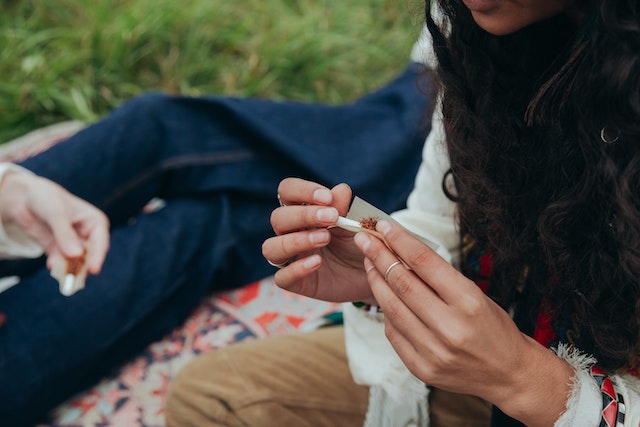Different Types of Addiction & How They’re Treated
Long-term, addiction was treated and thought of as a choice. The brain and addiction have been further studied. Addiction can now be described as a biological disorder1. This is when a person cannot control their consumption of a product, or engage in certain behaviors.
Contact us today if you or someone you love is looking for a drug rehabilitation center in South Florida, New Jersey or elsewhere. We can provide information and resources that will help you get on the road to recovery.
How addiction works
“A common misconception is that addiction is something you choose or have a moral problem with, and you can stop. The director of the National Institute on Alcohol Abuse and Alcoholism, Dr. George Koob states that nothing could be further from reality.
Addiction, whether it is chemical or behavioral in nature, has changed the brain. Addiction takes over the brain and alters hardwired responses. It can even damage areas of the brain that are vital to survival.
Addiction is a disease that aims to make you feel better. Addiction rewires the brain, changing healthy brain’s pleasure/reward response to addiction. Addiction can also alter the brain’s emotional response to danger circuits.
A healthy brain is designed to protect you from danger. An addicted brain can override these circuits and cause anxiety and stress.
Two types of addiction are available: behavior and chemical.
What you need to know about Behavioral Addiction
The brain responds to a behavioral addiction in the same way that a chemical addiction does. A person suffering from a behavioral addiction feels anxious or stressed if they don’t have the behavior. This person craves the behavior because it gives them a feeling of “high” or euphoria.
- Gambling addiction
- Sex addiction
- Cyber addiction is a dependence on the internet, phones and digital media.
- Work addiction
- Shopping addiction
The World Health Organization (WHO), recognizes behavioral addictions as a disease.
What you need to know about chemical addiction
Chemical addiction refers to a condition where a person uses substances that are either toxic in themselves or in their way. One or more of these could be considered chemical addiction.
- Alcohol
- Prescription medication, such as
- Opioids,
- Morphine,
- Fentanyl,
- Xanax,
- You can also buy Valium and other medications.
- Illicit drugs such as
- Heroin,
- Cocaine,
- Ecstasy,
- Methamphetamines and other substances
Different types of addiction treatment
There are many ways to treat addiction. Your family, along with your mental and medical health professionals, should decide the best treatment plan for you. Each person, each addiction, and every experience requires individual care.
There are many options available, including outpatient rehab and inpatient rehab. You can also choose from other therapies or combination therapies to help you regain control over your life.
Inpatient Rehab
Inpatient rehab means that you spend a specified amount of time in a 24-hour facility. You may be under medical supervision during this time to assist you with alcohol detox or other chemical addictions. Counselling, individual or group therapy may be offered to help you learn coping skills and provide support.
Outpatient Rehab
For people who are looking to recover from addictions such as alcohol abuse, drug rehab, and other forms of dependency, outpatient treatment may be the best option. Outpatient treatment does not require you to live at the center. However, you will receive regular treatment including counseling, group therapy and individual therapy.
Outpatient rehab can be used as a second option or as a follow up program to inpatient treatment. For ongoing recovery, it is important to receive on-going care after you have been discharged from either rehab.
Other therapies are also available
Talk therapy and group therapy can be very important in your recovery process. Medical intervention might be the best option. There are many other therapies that can help you recover. Hypnotherapy can help you to access past traumas and suppressed memories.
Sometimes, it can help you see your addiction from a different perspective. Hypnotherapy may also help you see the root cause of your addiction. Your success in sobriety could be improved by addressing the root cause.
Get in touch
Call at HTML762-3796 to speak with a specialist in your recovery.
All In Solutions will treat you with kindness and respect. We will develop a multi-faceted program that can help you on your journey to recovery. We care about you, Ladies and Gentlemen.
Ask for help. You can get out of your addiction. We can help.
Resources
U.S. Department of Health and Human Services. (2017, September 8,). Biology of addiction. National Institutes of Health. Retrieved April 11, 2022, from https://ift.tt/spyFIUo
Semaille P. (2009). Les nouvelles formes d’addiction [The new types of addiction]. Revue medicale de Bruxelles, 30(4), 335-357.
Grant, J. E., Potenza, M. N., Weinstein, A., & Gorelick, D. A. (2010). Introduction to behavioral addictions. American journal of drug- and alcohol abuse, 36(5): 232-241. https://ift.tt/EJDGO70
Information Resources on Substance Abuse. SAIR. (n.d.). Retrieved April 11, 2022, from https://ift.tt/xiQhGAZ
All In Solutions Counseling Center is a drug and alcohol treatment network. We provide inpatient & outpatient substance abuse treatment programs that are uniquely designed to meet each client's needs. Our specialized programs include:
- Christian rehab
- Medication assisted treatment
- Art therapy for addiction
- Men's drug rehab
- Women's drug & alcohol rehab
Our locations include:
Different Types of Addiction & How They’re Treated-All In Solutions-All In Solutions - A Solutions Based Behavioral Healthcare Group
from All In Solutions https://ift.tt/3eJolPk
via IFTTT

No comments:
Post a Comment